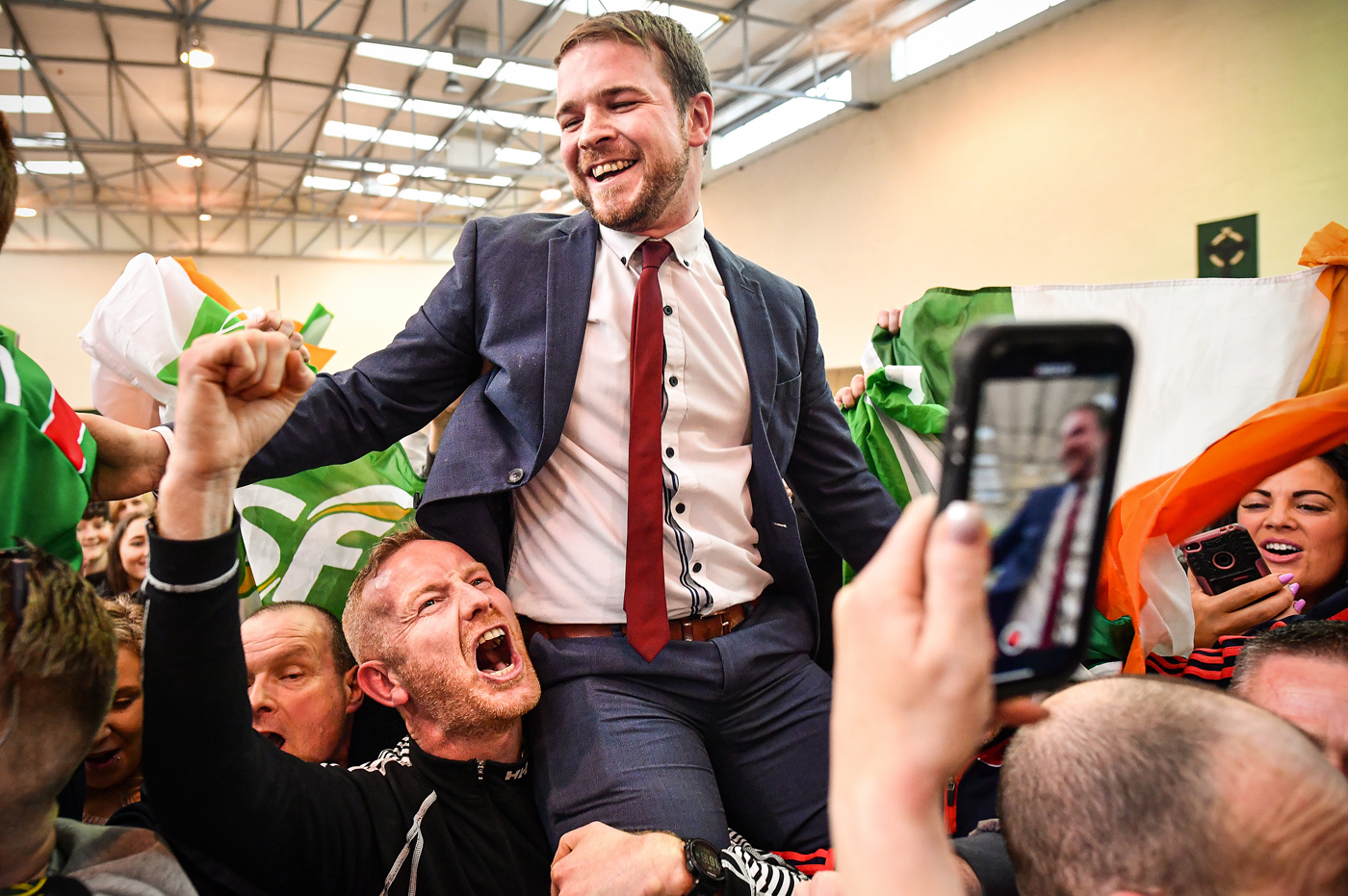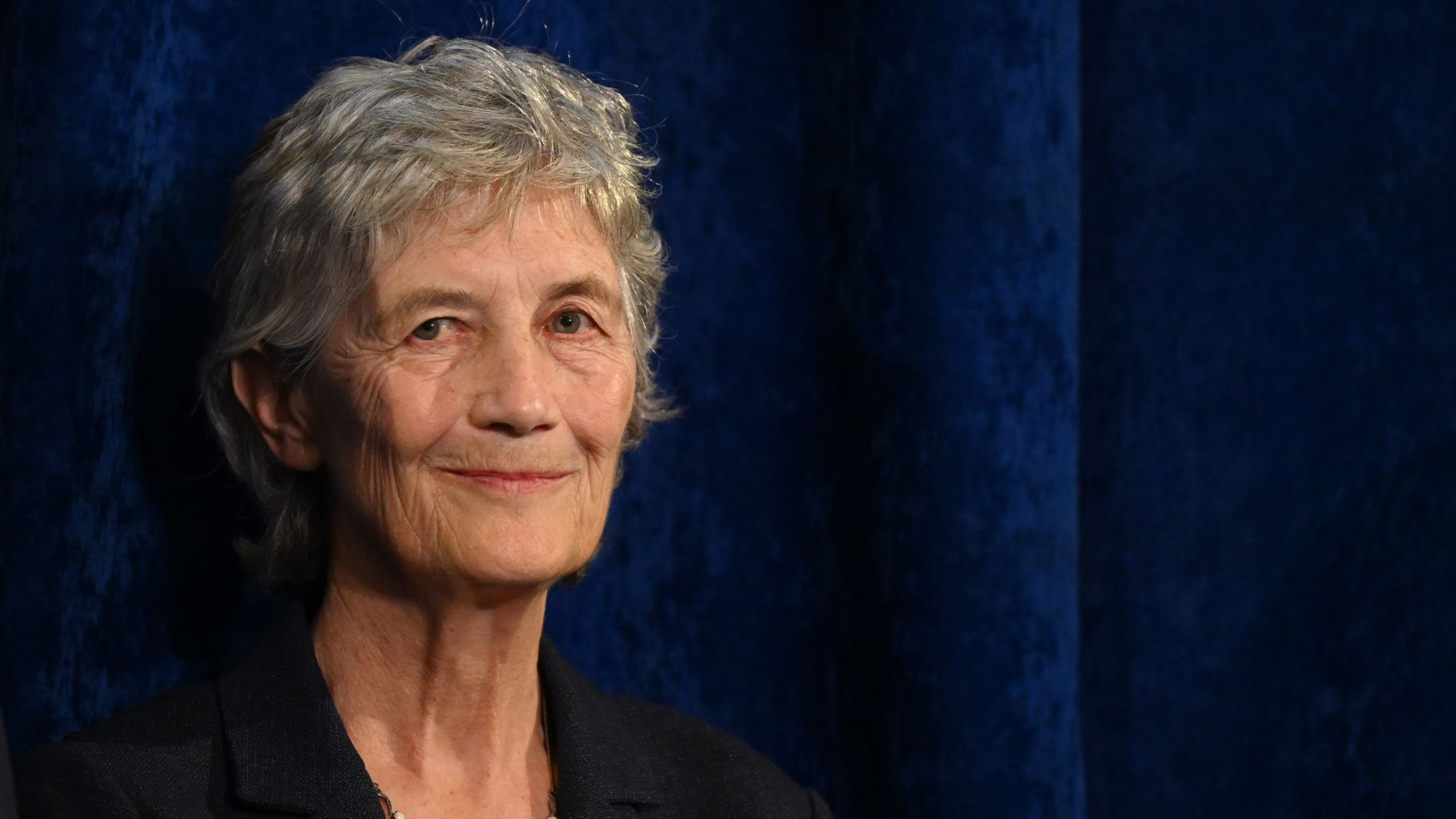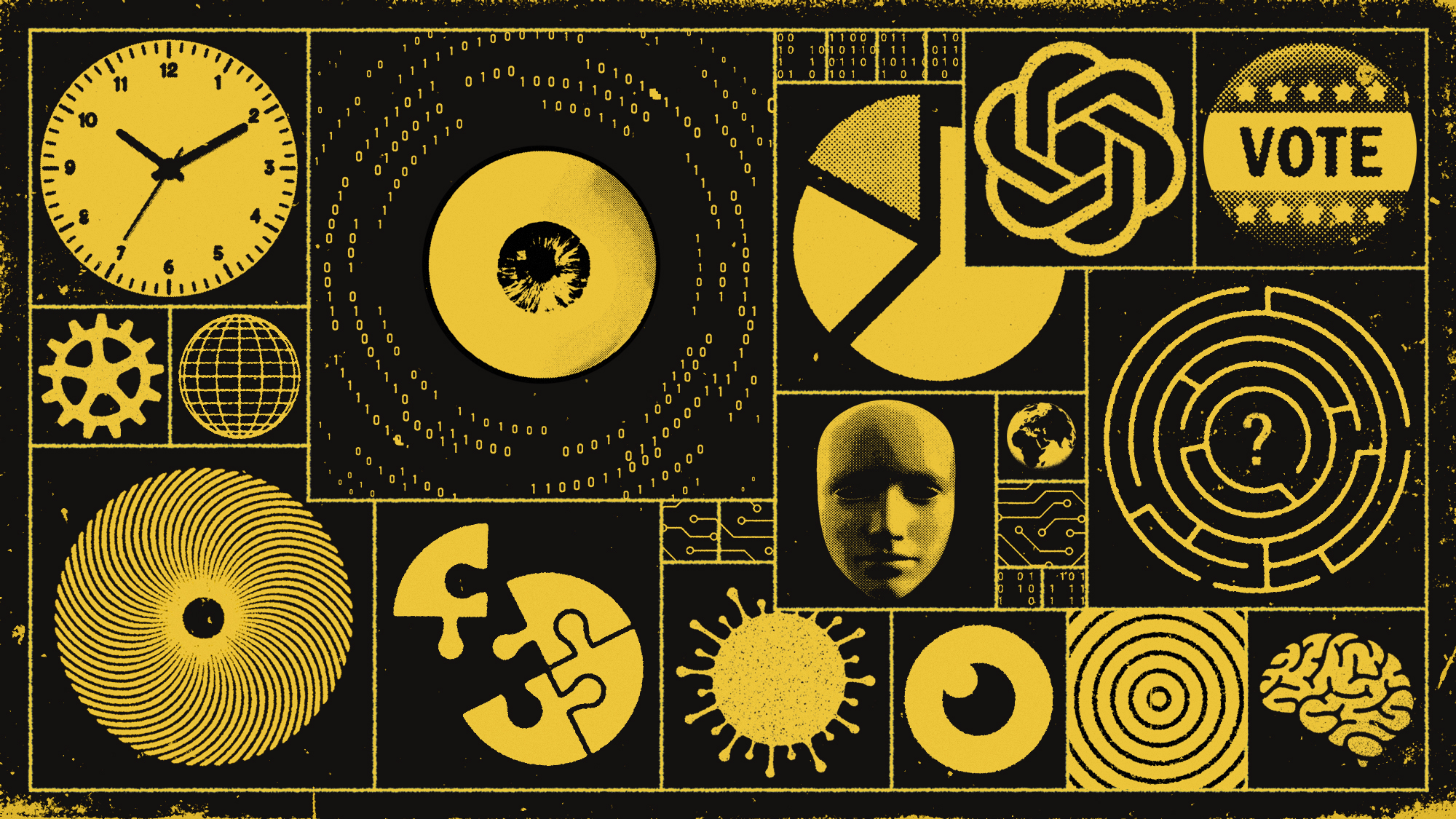Irish general election: Sinn Fein demands government role after topping first preference poll
Three parties almost level, with Sinn Fein gains representing a ‘realignment of Irish politics’

A free daily email with the biggest news stories of the day – and the best features from TheWeek.com
You are now subscribed
Your newsletter sign-up was successful
Sinn Fein will attempt to form government after surging to the highest vote share in a historic general election that looks set to reshape the country’s political landscape
Irish voters produced a near three-way tie, with the nationalist party narrowly coming out on top in a result that will make it hard for the country’s two major parties to govern without it.
With 96% of first-preference votes tallied yesterday, Sinn Fein had 24.1%, with Fianna Fail on 22.1%, Fine Gael on 22.1%, Greens on 7.4%, and other parties making up the rest.
The Week
Escape your echo chamber. Get the facts behind the news, plus analysis from multiple perspectives.

Sign up for The Week's Free Newsletters
From our morning news briefing to a weekly Good News Newsletter, get the best of The Week delivered directly to your inbox.
From our morning news briefing to a weekly Good News Newsletter, get the best of The Week delivered directly to your inbox.
The dramatic gains by the nationalist party shattered the century-long dominance of the two traditional ruling parties and represents a “realigning Irish politics” that “boost the party’s chance of joining the next government” says The Guardian.
Taoiseach Leo Varadkar called the election “in the hope of riding a wave of public approval over his defence of Ireland's interests in the first stage of the Brexit negotiations”, says Politico. “But any kudos was overshadowed by deep voter unhappiness over a housing shortage and public services and infrastructure that have not expanded to cope with a growing population and the strongest economic growth in the European Union”.
“From the tallies at count centres around the country, it seems clear a huge shift has taken place” agrees the BBC’s Chris Page.
Axios says Sinn Fein “is a powerful force in Northern Ireland, but has historically been a minor player in the Irish Republic — until this year, when its left-wing policies helped attract young and urban voters”.
A free daily email with the biggest news stories of the day – and the best features from TheWeek.com
The party, shunned by voters as the IRA’s political wing during the Troubles, capitalised on anger at soaring rents and homelessness but “also tapped voter frustration at hospital bed shortages, insurance costs, pension reform and a sense of being left behind by economic growth. The party’s agenda for Irish unification, and Northern Ireland in general, took a backseat in the campaign”, says the Guardian.
However, “the party’s decision to run only 42 candidates in the election looks at have backfired”, says The Daily Telegraph, with early polling indicates that in many constituencies where Sinn Fein ran one candidate it had enough votes to return two candidates.
Nevertheless Sinn Fein is still expected to return 30 MPs to the 160-seat Dail, meaning it will be “kingmakers in the formation of the new Irish government unless Fianna Fail and Fine Gael agree a grand coalition” say the Telegraph.
Negotiations to form a coalition government are likely to be “complex” says the Daily Mail, with both Fine Gael and Fianna Fail previously stating they would not enter an agreement with Sinn Fein.
–––––––––––––––––––––––––––––––For a round-up of the most important stories from around the world - and a concise, refreshing and balanced take on the week’s news agenda - try The Week magazine. Start your trial subscription today –––––––––––––––––––––––––––––––
-
 Quentin Deranque: a student’s death energizes the French far right
Quentin Deranque: a student’s death energizes the French far rightIN THE SPOTLIGHT Reactions to the violent killing of an ultra-conservative activist offer a glimpse at the culture wars roiling France ahead of next year’s elections.
-
 Secured vs. unsecured loans: how do they differ and which is better?
Secured vs. unsecured loans: how do they differ and which is better?the explainer They are distinguished by the level of risk and the inclusion of collateral
-
 ‘States that set ambitious climate targets are already feeling the tension’
‘States that set ambitious climate targets are already feeling the tension’Instant Opinion Opinion, comment and editorials of the day
-
 How corrupt is the UK?
How corrupt is the UK?The Explainer Decline in standards ‘risks becoming a defining feature of our political culture’ as Britain falls to lowest ever score on global index
-
 The high street: Britain’s next political battleground?
The high street: Britain’s next political battleground?In the Spotlight Mass closure of shops and influx of organised crime are fuelling voter anger, and offer an opening for Reform UK
-
 Is a Reform-Tory pact becoming more likely?
Is a Reform-Tory pact becoming more likely?Today’s Big Question Nigel Farage’s party is ahead in the polls but still falls well short of a Commons majority, while Conservatives are still losing MPs to Reform
-
 Meet Ireland’s new socialist president
Meet Ireland’s new socialist presidentIn the Spotlight Landslide victory of former barrister and ‘outsider’ Catherine Connolly could ‘mark a turning point’ in anti-establishment politics
-
 Believe it when AI see it: is this a deepfake turning point in politics?
Believe it when AI see it: is this a deepfake turning point in politics?Today’s Big Question AI ‘slopaganda’ is becoming a ‘feature’ of modern elections
-
 Taking the low road: why the SNP is still standing strong
Taking the low road: why the SNP is still standing strongTalking Point Party is on track for a fifth consecutive victory in May’s Holyrood election, despite controversies and plummeting support
-
 What difference will the 'historic' UK-Germany treaty make?
What difference will the 'historic' UK-Germany treaty make?Today's Big Question Europe's two biggest economies sign first treaty since WWII, underscoring 'triangle alliance' with France amid growing Russian threat and US distance
-
 Is the G7 still relevant?
Is the G7 still relevant?Talking Point Donald Trump's early departure cast a shadow over this week's meeting of the world's major democracies